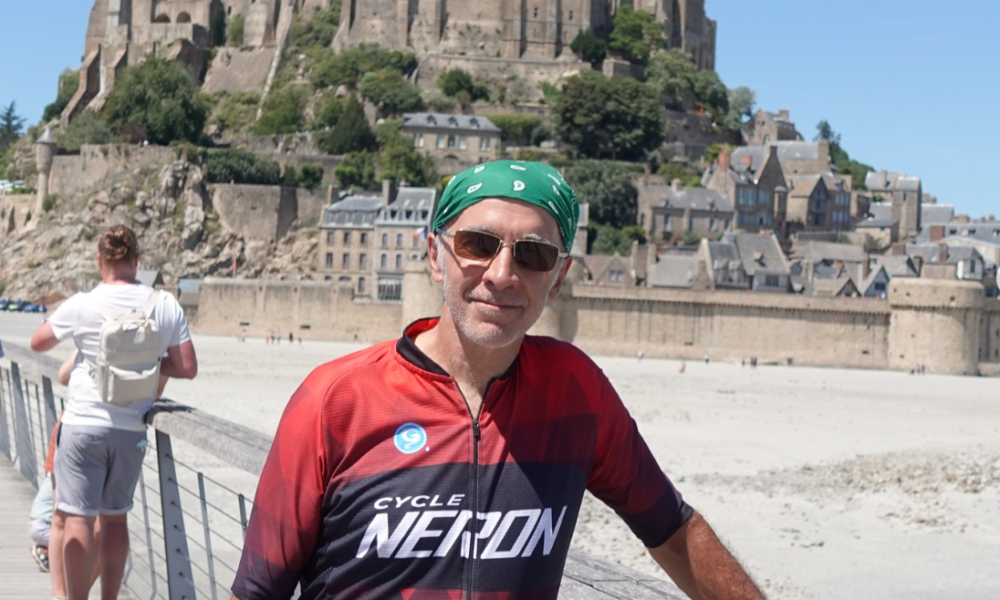On July 1, 62-year-old McGill mechanical engineering professor Larry Lessard set out on the journey of a lifetime. An avid cyclist and expert on recycling, Lessard plans to travel across three continents, 28 countries, and 20,000 kilometres in 400 days. Along the way, he’ll stop at universities and wind farms to share his research into recycling and push for a faster transition to a circular economy.
On the evening of his interview with The McGill Tribune, Lessard had just finished a 125-kilometre leg of the trip from Magdeburg to Liepzig, Germany. Nearing retirement and dealing with the early stages of arthritis, there was no time left to waste.
“I’ve been wanting to do this all my life,” Lessard said.“I had a career and all kinds of things that got in the way. And now I have a chance to do it.”
Lessard’s route started in Paris and will conclude in Montreal. He will travel through most of Northern Europe and Scandinavia before moving south through Turkey, Georgia, Iran, and Azerbaijan. After a short stint flying through India, Pakistan, and Bangladesh, where roads are less friendly for bikers, he will resume his journey in Thailand, covering much of South East Asia and Japan. Finally, he will return to Canada for his final journey from Vancouver to Montreal.
The Bike62 Project, as he calls it, is more than just a thrill-seeking adventure. In addition to spreading his knowledge about recycling, he plans to visit wind farms and speak with clean energy leaders about the need to recycle wind turbine blades, which each contain about eight tons of fibreglass—a material with high potential for reuse in recycling.
“[Wind farming] is an industry that prides itself on being green energy. But they have a big waste problem,” Lessard said. “We want to target these green people first because they have a vested interest in their green image […] and then we can expand into other sectors.”
Fibreglass, made from carbon fibre, is found in objects like bathtubs, boat bodies, and bicycles. Though notoriously difficult to recycle, its second-life potential is huge. Carbon fibre is stronger than steel and doesn’t corrode or rust, but takes 14 times as much energy to produce. Finding a way to reuse existing carbon fibre could enable mass production of longer-lasting buildings, machinery, and vehicles, while reducing the environmental impact of waste and unnecessary production of new fibreglass.
Lessard is looking forward to the leg of his trip that will take him through countries with less robust recycling infrastructure, where citizens and governments are forced to think creatively about solutions to waste management and the climate crisis. He notes that initiatives like Canada’s public recycling pick-up program are not universal.
He plans to compile his findings into a documentary that he’s filming along the way with support from the Paragon Institute of Innovation. Each day, he films his travels on a Go-Pro that he attaches to his bike. He supplements the footage with interviews shot on a small movie camera, a drone, and an iPhone which he carries in a saddle bag. A crowdfunding campaign for the project is currently running on his GoFundMe.
Balancing the distance, the terrain, the equipment, and a busy schedule has not been easy.
“I consider myself a naive person,” said Lessard, clearly in good spirits. “Even if it’s difficult, I can’t go back now.”
You can follow Lessard’s trip and see a live route map at www.Bike62.com or on Instagram at @ridebike.saveplanet.










Pingback: 400 days of cycling and recycling – THE PROJECT BIKE62